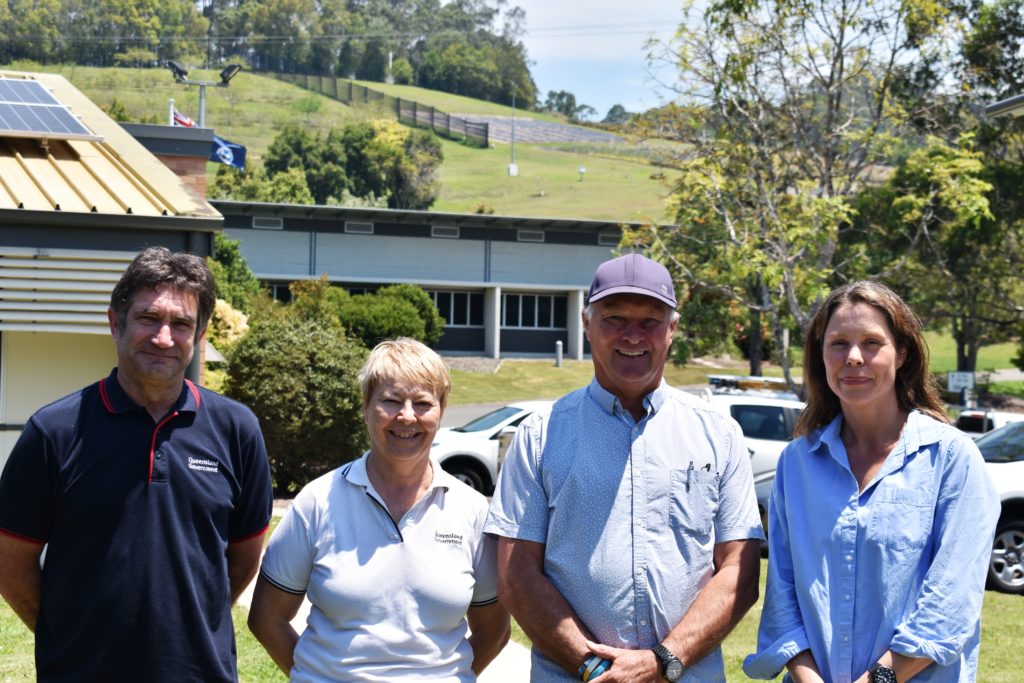
Above: Zane Nicholls with the GEC Implementation team
The Australian ginger industry is a world leader in producing and bringing food safe quality ginger to the market and controlling pest and disease is paramount to producing high-quality ginger. Zane’s project aims to establish and deliver ongoing research and chemical registration process to enable Australian ginger growers access to pest and disease management controls in a timely and controlled environment. This includes the preparation and submission of industry wide minor use permit applications to ensure growers have access to the ‘best practice’ chemical controls available to manage pest and disease.
Why is this research important?
As new pests or diseases are identified, or animals and plants develop resistance to existing technologies, access to safe and effective agricultural chemicals becomes critical to the success of rural industries, including the ginger industry. While this is critical food safety must be considered.
The previous ‘Extension and Coordination Program’ introduced a food safety and quality program, Freshcare Food Safety and Quality Program, to the ginger industry. The Freshcare Food Safety and Quality program taught growers new methods of assessing the food safety and quality control performance of their business while strengthening the industries ‘food safe, quality ginger’ credentials.
An important part of this food safety program is the management of the minor use permits for chemical control of diseases and plant pests. Maintaining currency of minor use chemical permits is essential to ensure industry have access to best practice chemical controls for their pest and disease pressures.
This minor use permit program underpins the current Ginger Extension Coordination projects Food Safety and Quality Program’ seen to be critical in the promotion and growth of the industry and its markets.










